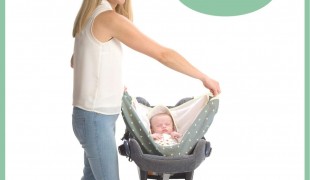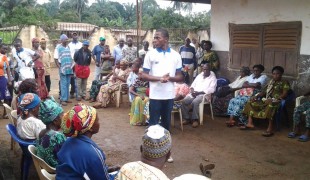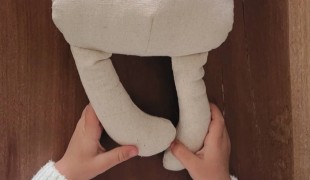- 3287
- 319
- 5
- 4
- 0
- Help Ukraine
About the solution
Faezeh Marzbanrad is a researcher in Melbourne, Australia, and the investigation she conducts is focused primarily in fetal's health. The birth of her daughter was a moment of joy, while also being very formative of the challenges motherhood poses. It led Marzbanrad to find her research interests expanding into technologies that not only support the developing baby’s health but also maternal health. One appointment with the obstetrician was particularly memorable and in retrospect a turning point. She explains that “The first thing the doctor asked was, ‘How much is the baby moving?’ I could only guess, because I hadn’t had the time to keep a careful track, and this was stressful and worrying as an expectant mum.”
As an engineer her mind wondered “ Why don’t we have a device that can measure a baby’s kicks, and take the burden off women to do it all themselves?”. Fast-forward, and Marzbanrad is now part of a multidisciplinary research team of engineers and obstetricians developing exactly this type of device. The soft and inexpensive smart patch in development, which uses electronic-skin sensing technologies and AI, will hopefully reduce stillbirths by revolutionizing the way fetal movements are evaluated.
Marzbanrad has also been developing a monitoring device that can accurately measure a baby’s breast milk intake. The inspiration was the struggles in the early months of her own child’s life. “My baby wasn’t putting on enough weight, and there were concerns about her feeding, which was another stressful thing to handle,” she says.
Her solution involves placing a small device on a baby’s neck while feeding, which applies an AI algorithm to sensor data that can automatically measure the milk intake. Still in development, the device aims to be safe and unobtrusive and has the potential to significantly improve the care of sick or premature babies transitioning from tube feeding to breast or bottle feeding.
This story was adapted from: https://lens.monash.edu/2022/06/22/1384818/matters-of-the-heart-the-medt...
This solution shall not include mention to the use of drugs, chemicals or biologicals (including food); invasive devices; offensive, commercial or inherently dangerous content. This solution was not medically validated. Proceed with caution! If you have any doubts, please consult with a health professional.
DISCLAIMER: This story was written by someone who is not the author of the solution, therefore please be advised that, although it was written with the utmost respect for the innovation and the innovator, there can be some incorrect statements. If you find any errors please contact the patient Innovation team via info@patient-innovation.com
-
-
331
-
0
-
3889

The Snugglebundl, a new way to support your baby
-
-
-
546
-
0
-
7596

Man launches platform so that mothers and pregnant women can benefit from health services
COMMUNICATION: Communicating, whether by speaking, listening, or other means
(SELF)-CARE: HYGIENE: Maintaining personal hygiene
CAREGIVING
Pregnancy
App (Including when connected with wearable)
Website
Enhancing health literacy
Promoting self-management
Building Supportive Community Relationships
Promoting inclusivity and social integration
To improve Treatment/Therapy
Preventing (Vaccination, Protection, Falls, Research/Mapping)
Support on Puerperium/Post-childbirth
Raise awareness
General and Family Medicine
Gynecology and Obstetrics
Infectious Diseases
Pediatrics
Public Health
Tropical Medicine
Niger
-
-
-
266
-
0
-
2959

From Anguish to Comfort: The Incredible Indie Journey
SLEEP FUNCTION: Resting
CAREGIVING
(SELF)-CARE: EATING: Eating independently.
oesophageal disorders (oesophagitis, gastroesophageal reflux disease, gastroesophageal sphincter insufficiency)
Educational/Leisure device (book, toy, game...)
Nauseas
Heartburn
Belching (burping)
Difficulty swallowing (dysphagia)
Enhancing digestive function
Managing Neurological Disorders
To improve Treatment/Therapy
Preventing (Vaccination, Protection, Falls, Research/Mapping)
Support on Puerperium/Post-childbirth
Gastroenterology
General and Family Medicine
Gynecology and Obstetrics
Pediatrics
Australia
-
 en
en